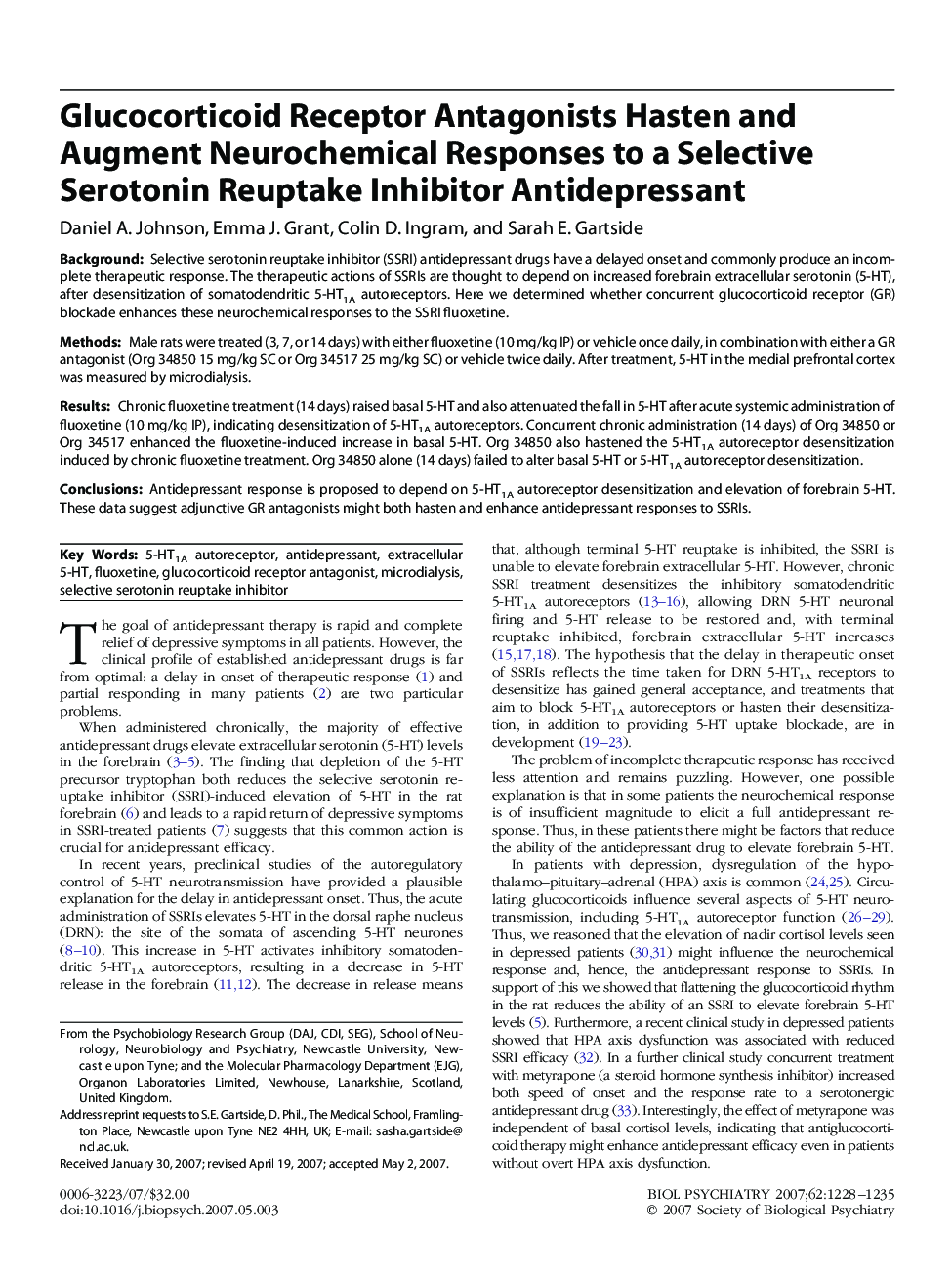| Article ID | Journal | Published Year | Pages | File Type |
|---|---|---|---|---|
| 4180486 | Biological Psychiatry | 2007 | 8 Pages |
BackgroundSelective serotonin reuptake inhibitor (SSRI) antidepressant drugs have a delayed onset and commonly produce an incomplete therapeutic response. The therapeutic actions of SSRIs are thought to depend on increased forebrain extracellular serotonin (5-HT), after desensitization of somatodendritic 5-HT1A autoreceptors. Here we determined whether concurrent glucocorticoid receptor (GR) blockade enhances these neurochemical responses to the SSRI fluoxetine.MethodsMale rats were treated (3, 7, or 14 days) with either fluoxetine (10 mg/kg IP) or vehicle once daily, in combination with either a GR antagonist (Org 34850 15 mg/kg SC or Org 34517 25 mg/kg SC) or vehicle twice daily. After treatment, 5-HT in the medial prefrontal cortex was measured by microdialysis.ResultsChronic fluoxetine treatment (14 days) raised basal 5-HT and also attenuated the fall in 5-HT after acute systemic administration of fluoxetine (10 mg/kg IP), indicating desensitization of 5-HT1A autoreceptors. Concurrent chronic administration (14 days) of Org 34850 or Org 34517 enhanced the fluoxetine-induced increase in basal 5-HT. Org 34850 also hastened the 5-HT1A autoreceptor desensitization induced by chronic fluoxetine treatment. Org 34850 alone (14 days) failed to alter basal 5-HT or 5-HT1A autoreceptor desensitization.ConclusionsAntidepressant response is proposed to depend on 5-HT1A autoreceptor desensitization and elevation of forebrain 5-HT. These data suggest adjunctive GR antagonists might both hasten and enhance antidepressant responses to SSRIs.
